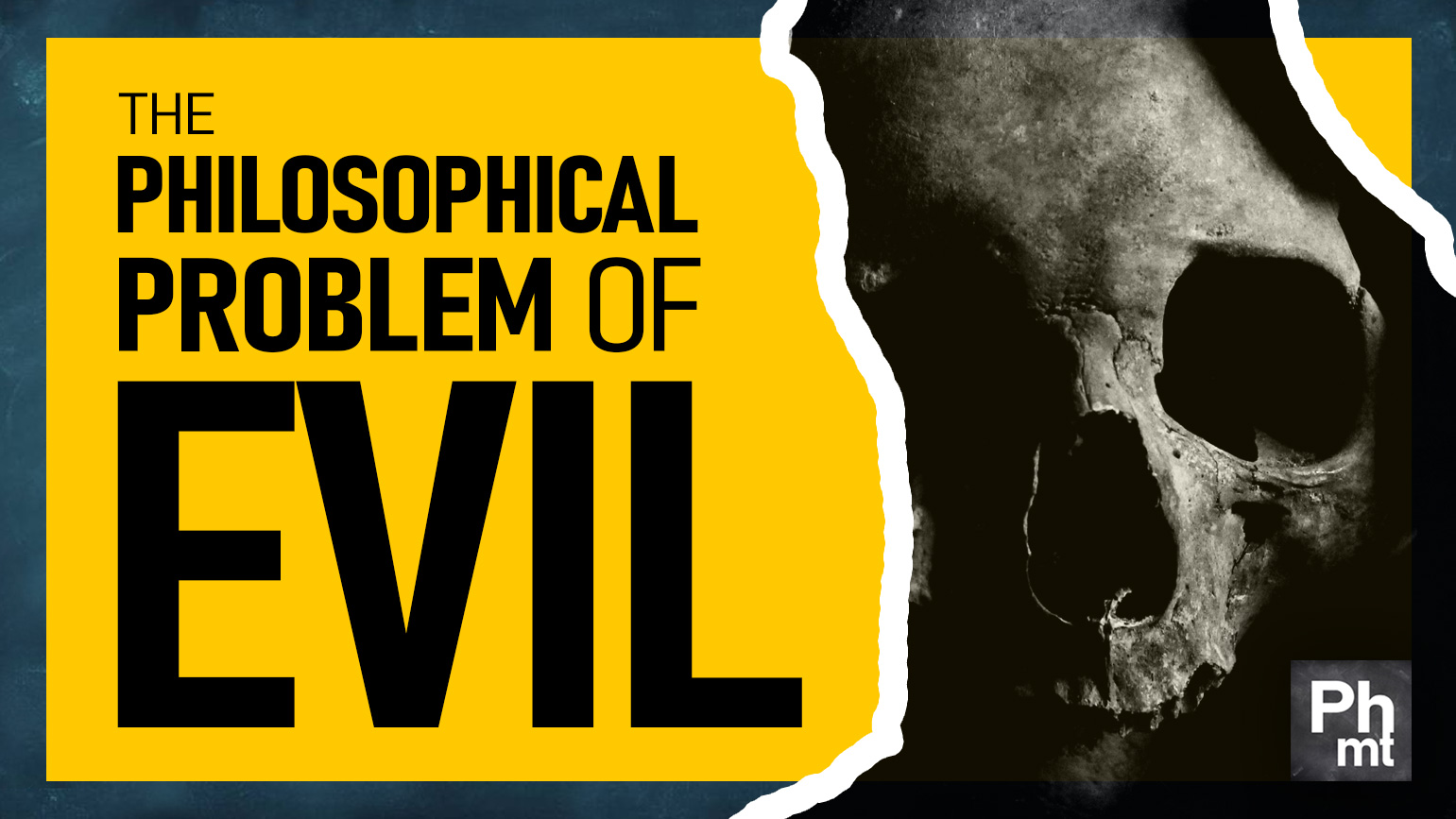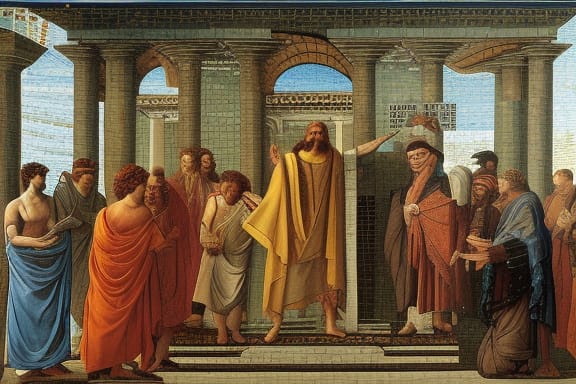The responsibility of freedom: The philosophy of Jean-Paul Sartre
Born in Paris in 1905, Jean-Paul Sartre lived through some of the most transformative moments in recent history and used his experience to shape his views on the human condition.
Politically engaged throughout his life, Sartre was a vocal advocate for freedom and human rights. He was a member of the French Resistance during World War II, where he used his influence as a writer and intellectual to support the anti-Nazi cause. In the 1950s and 60s, Sartre was critical of the French government and its policies. He was a vocal advocate for human rights and freedom. Sartre was particularly critical of the government’s handling of the Algerian War, speaking out against the use of torture and other human rights abuses by French forces.
From a young age, Sartre was drawn to the world of literature and went on to become a celebrated playwright and novelist. However, it was his contributions to existentialism and postmodern philosophy that solidified his place in the annals of history. Sartre’s ideas, influenced by a number of previous philosophers and thinkers, challenged conventional wisdom about human existence and freedom.
Sartre’s magnum opus, “Being and Nothingness,” is widely regarded as a seminal text in existentialist literature, where he argues that human beings are defined by their existence in the world, rather than their essence or nature. This means that we have the power to shape our own lives and create our own meaning, but it also means that we are responsible for our own choices and actions.
Sartre’s political activism and philosophical ideas made him a controversial figure, but his impact on modern thought cannot be denied. This was in line with his broader philosophical views, which emphasised the importance of individual freedom and responsibility.
Sartre’s ideas about freedom and responsibility have been compared to those of Nietzsche and Heidegger. Nietzsche argued that human beings are not passive creatures but are instead driven by a will to power, and this drive is the source of all creativity and growth. Sartre was also influenced by Heidegger’s idea that human beings are defined by their existence in the world, rather than by their essence or nature. This led Sartre to focus on the individual’s experience of freedom ,and to develop his own philosophy about freedom and responsibility.
Get ready to explore his through-provoking ideas on freedom, existence, and human responsibility, and discover why this philosopher continued to captivate minds and hearts today.
i. Sartre and Radical Freedom
Perhaps Sartre is best known as the philosopher of radical freedom.
After the fall of France in 1940, Sartre spent the years of Nazi occupation in Paris. This experience gave him a firsthand view of the ways in which individuals can be oppressed and controlled. For a year, he would be imprisoned in a German prisoner-of-war camp, an experience that had a profound impact on his thinking about freedom and responsibility.
He later wrote about his experiences in his novel Nausea, which explores the idea of freedom as a source of anxiety and alienation.
“I have to be myself. I can’t deny myself any longer. I have to accept the fact that I exist. And existence is not something neutral: it’s a value, a choice that one makes, it’s the original act. I am a free man. I can’t keep hiding behind my own ignorance, pretending to be dead.”
Roquentin, the main character, is realising the truth of his own existence and the radical freedom that comes with it. Understanding that his existence is not just some neutral fact, he understands that he is responsible for the choices he makes and the life he leads.
For Sartre, human beings have the power to shape their own lives and create their own meaning, and this freedom is both a blessing and a curse. We are free to make our own choices and determine our own fate, but this freedom also brings with it a sense of responsibility and the possibility of failure.
Sartre’s ideas about radical freedom can be seen in his concept of existentialism, which emphasises the importance of individual choice and responsibility. In Being and Nothingness he writes, “Man is nothing else but what he makes of himself.” This emphasis on the power of individual choice and action is key to understanding radical freedom.
Let’s consider Sartre’s example of a work of art. According to him, a work of art is not just an object in the world, but also an expression of the artist’s freedom and creativity. When an artist creates a painting or a sculpture, they are not just making an object, but also a statement about their own freedom and the possibilities that exist in the world.
Another example can be seen in his political activism. He believed that it was the responsibility of individuals to fight for human rights. In his play Dirty Hands, Sartre explores the idea that political activism requires individuals to make difficult choices and take risks. The play’s central character, Hugo, must choose between his ideals and the reality of political power, and Sartre argues that his choice is a fundamental aspect of what it means to be free.
ii. Anguish and Bad Faith
Sartre’s ideas about anguish and bad faith are central to his philosophical views on freedom and responsibility. Anguish, for Sartre, is the feeling of anxiety and fear that arises when an individual realises the full weight of their own freedom. This realisation can be overwhelming, as it requires the individual to take full responsibility for their own existence and the choices they make. Sartre believed that anguish is a natural and inevitable part of the human experience. It is a necessary step towards authentic existence.
Bad faith, on the other hand, is a form of self-deception in which an individual denies their own freedom and tries to escape the responsibility that comes with it. This can take many forms, including pretending to be someone you are not, denying your own desires and ambitions, or ignoring the truth about your own existence. Sartre saw bad faith as a way of avoiding the discomfort and anxiety of anguish, but he also believed that it was ultimately unsatisfying and inauthentic.
One famous quote from Sartre’s work speaks to these ideas:
“Man is condemned to be free. Condemned, because he did not create himself, yet nonetheless free, because once thrown into the world, he is responsible for everything he does.”
It’s a quote that encapsulates Sartre’s view that freedom is both a blessing and a curse, and that individuals are responsible for their own lives and the choices they make. Anguish and bad faith are two sides of the same coin, with anguish representing the anxiety and discomfort that comes with freedom, and bad faith representing the attempt to escape that discomfort by denying one’s own freedom.
iii. Acting in Good Faith
Good faith, on the other hand, is a state of being in which an individual accepts and embraces their own freedom, and takes responsibility for the choices they make.
It requires us to be honest with ourselves. We must live in accordance with our own values and beliefs. This means acknowledging desires and ambitions, and taking action to fulfil them. Sartre believed that acting in good faith was a way of embracing one’s own freedom and taking control of one’s own life, rather than simply allowing life to happen to us.
“Man is nothing else but what he makes of himself”
In Sartre’s view, we are not predetermined by fate, God, or any other external force. Rather, we have the power to make ourselves who we are through the choices that we make and the action that we take. Good faith is about accepting this power and using it to create a meaningful and fulfilling life.
This can be a difficult and uncomfortable process, as it often requires us to confront our fears, limitations, and insecurities. However, it is the only way to live an authentic and fulfilling life. Avoiding this process is the root of all forms of bad faith.
By embracing good faith, individuals can take control of their own lives and create a future that is true to their own values and beliefs.
It provides a powerful framework for understanding the human condition, and offers a compelling argument for the importance of embracing one’s own freedom and responsibility. Whether one is a student, a worker, an artist, or a parent, the principles of good faith can be applied to every aspect of life, and can help individuals to live a more meaningful, fulfilling, and authentic life.
iv. The Creation of Value
Sartre’s ideas about good faith are closely linked to his views on the creation of value.
According to Sartre, value is not something that exists independently of human consciousness, but is instead created by individuals through the choices that they make and the actions they take. This means that individuals have the power to create value in their own lives, and to determine what is meaningful and important to them.
Sartre’s idea that “existence precedes essence” is central to his philosophy on the creation of value. It is an idea that suggests that individuals do not have a predetermined nature or propose, but rather create their own essence through their actions and experiences. We have the power to create meaning and value in our lives, rather than simply discovering it or having it imposed upon us by external forces.
This has a profound implication. It suggests that, by making our own choices, we have the power to shape our own identity.
v. Legacy
Sartre’s legacy is a tapestry woven with threads of existential philosophy, literature, and activism. His unique perspective on freedom and responsibility has left a lasting imprint on various fields, inspiring generations of thinkers and artists alike.
In philosophy, Sartre’s existentialism has been inspired by past philosophers and by the world that he saw around him, and in turn, it challenged and expanded traditional ideas about the individual’s relationship to the world. His emphasis on freedom and responsibility has encouraged new perspectives on personal identity, ethics, and morality.
Sartre’s lifelong companion, Simone de Beauvoir, explored the implications of Sartre’s existentialism for women in her book “The Second Sex”, forming a philosophical framework that would be used to fight against the oppression of women.
In literature, Sartre’s works, such as Nausea and No Exit, have been celebrated for their bold and innovative approach to storytelling. His writing style is characterised by its vivid descriptions of human emotions and experiences, and its themes of existential despair and hope.
Sartre’s impact on activism and political thought is equally profound. As a prominent voice of the French Resistance during World War II, his outspoken views on freedom and responsibility have inspired countless political movements and activists who have sought to make the world a more just and equal place.
Subsequent philosophers had a range of reactions to the work of Sartre. Some, like Michel Foucault, were heavily influenced by his ideas about freedom, authenticity, and the construction of identity. Foucault’s ideas about the role of power and knowledge in shaping the self are seen as an extension and development of Sartre’s ideas about bad faith and self-deception.
Others, like Jacques Derrida, argued that Sartre’s emphasis on conscious choice and personal responsibility oversimplified the complex and nuanced ways in which individuals are shaped by the structures of language and power.
Sartre’s legacy is a testament to his unique and imaginative perspective on the human condition. As with all great philosophers, Sartre’s ideas were shaped by the context of his own life, and his influence has been felt through his writings and through the ways in which his ideas have been taken up and developed by others.
And this is a testament to the power of philosophy. It has the ability to provide insights into the human condition. It inspires change in the world. Every generation brings fresh insights and perspectives, and every new thinker adds their own unique contribution to the story.
In the end, the history of philosophy is not just the story of the past. It’s the story of humanity itself, the story of our quest for meaning and our pursuit of truth.
Here is a list of books that delve into the life and philosophy of Jean-Paul Sartre:




Pingback: Who Was Jean Paul Sartre? 7 Aspects Unveiling the Profound Existential Genius
Pingback: Who Was Jean Paul Sartre? 5 Aspects Unveiling the Profound Existential Genius
Pingback: Ego and Moral Burden - Wise & Shine